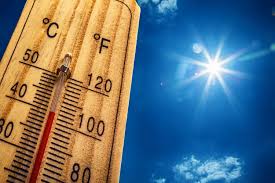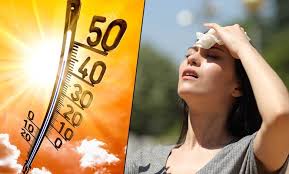
Impact of Heatwaves: Causes and Climate Connection
Heatwaves are becoming increasingly common due to climate change, posing significant risks to human health, the environment, and the economy. We will now delve into the various consequences of heatwaves and discuss strategies to mitigate their effects.

Heatwaves are prolonged periods of excessively hot weather, often accompanied by high humidity levels, that can cause discomfort and, in some cases, serious health problems. These events can occur anywhere in the world and can have a significant impact on people’s lives, as well as on the environment and the economy.
Cause of a heatwave
The main cause of a heatwave is a high-pressure system that traps warm air near the ground, preventing cooler air from moving in. This can lead to a prolonged period of hot, dry weather that can last for days or even weeks. Heatwaves are becoming more frequent and intense due to climate change, and they can have a range of impacts on human health and wellbeing.
One of the most significant risks of heatwaves is heatstroke, a life-threatening condition that occurs when the body’s temperature regulation system fails. Symptoms of heatstroke include a high body temperature, confusion, dizziness, headache, and nausea, and it can lead to organ damage or death if left untreated.
Other health effects of heatwaves can include dehydration, heat cramps, and heat exhaustion. Vulnerable populations such as children, elderly people, pregnant women, and those with pre-existing health conditions are particularly at risk during heatwaves, and it’s important to take steps to protect yourself and others.

Some of the ways to protect yourself during a heatwave include staying indoors in air-conditioned spaces, drinking plenty of water, wearing lightweight, loose-fitting clothing, and avoiding outdoor activities during the hottest part of the day. It is also important to check on vulnerable people, including the elderly, to ensure that they are staying cool and hydrated.
Heatwaves can also have an impact on the environment and the economy. For example, prolonged periods of hot, dry weather can lead to droughts, which can have serious implications for agriculture and food production. Heatwaves can also increase the risk of wildfires, which can cause significant damage to natural habitats, homes, and infrastructure.
To mitigate the impact of heatwaves, it is important to take steps to reduce our carbon footprint and address the root causes of climate change. This includes reducing greenhouse gas emissions, investing in renewable energy, and adopting more sustainable practices in agriculture, transportation, and other sectors.

In conclusion, heatwaves are becoming more frequent and intense due to climate change, and they can have a significant impact on human health, the environment, and the economy. It is important to take steps to protect ourselves and vulnerable populations during heatwaves, as well as to address the underlying causes of climate change to reduce the risk of these events occurring in the future.
Disclaimer: The information provided in this content is for general informational purposes only. It is not intended as medical or healthcare advice, diagnosis, or treatment. Always seek the advice of a qualified healthcare professional with any questions you may have regarding a medical condition or healthcare decisions.
















